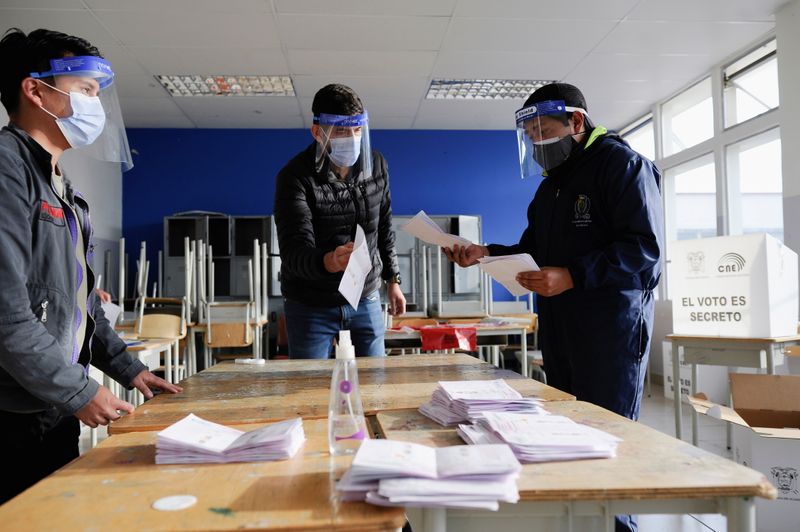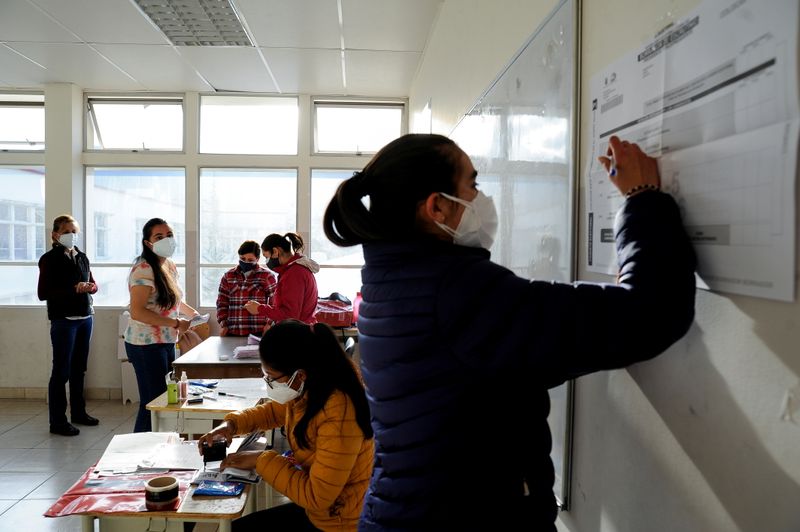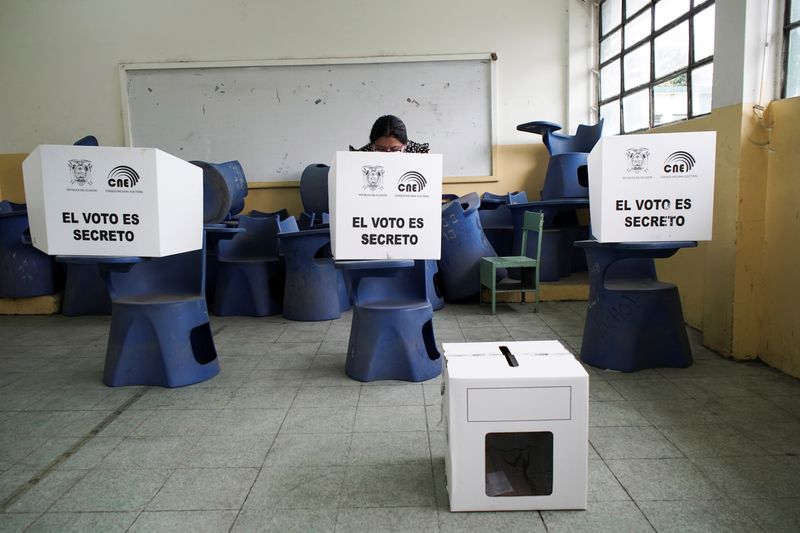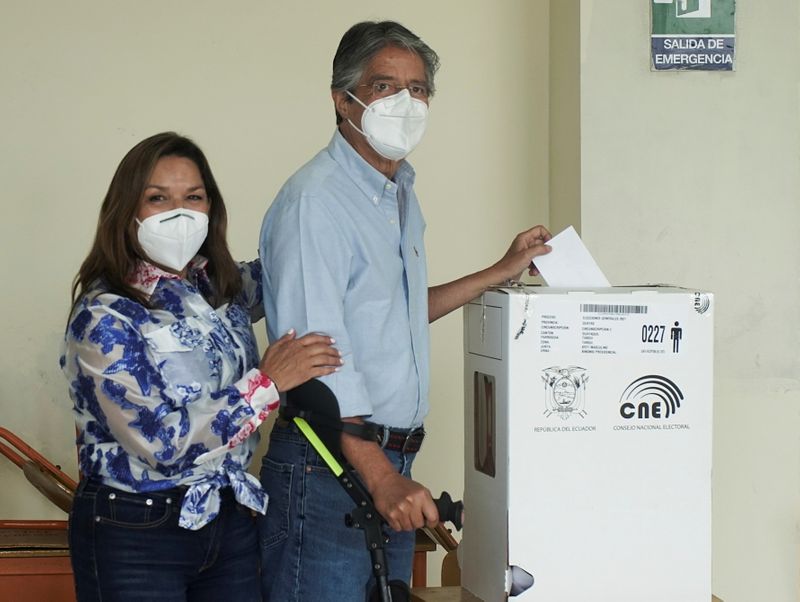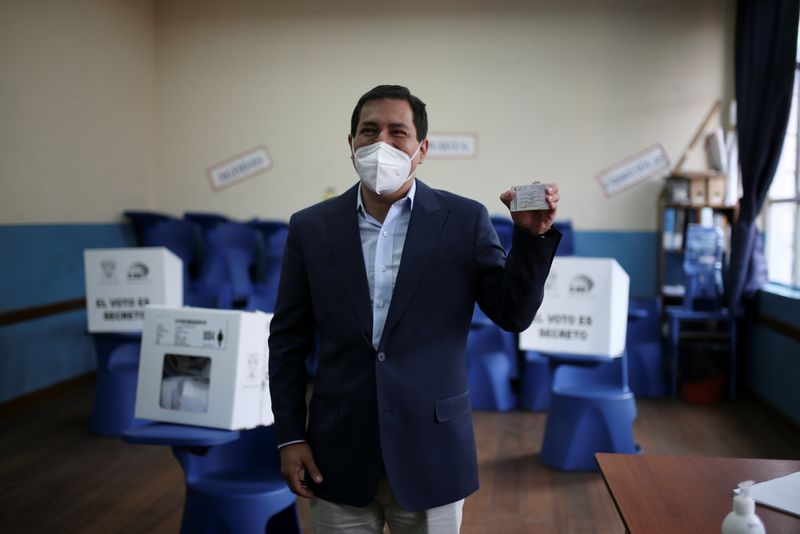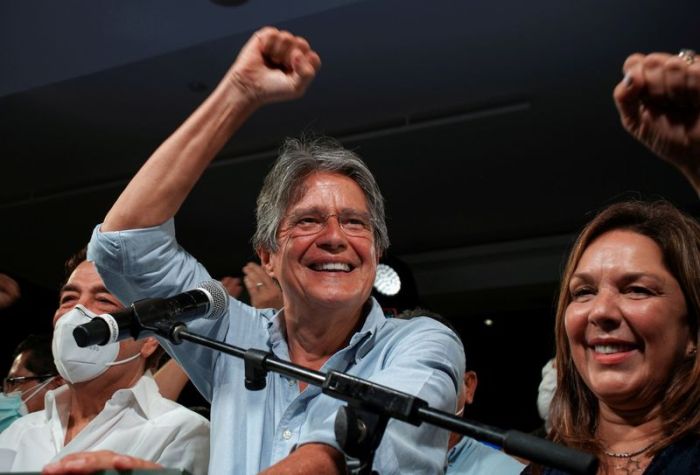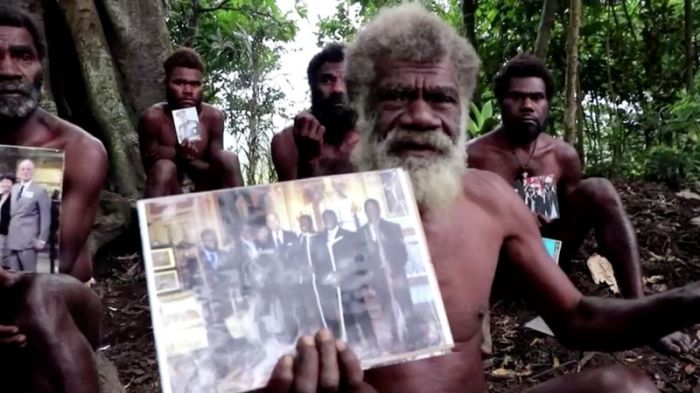QUITO (Reuters) – Ecuadorean banker Guillermo Lasso pulled off a surprise win in Sunday’s presidential runoff against socialist economist Andres Arauz, putting the country on track to maintain open market policies rather than return to socialism.
The victory, welcome news for investors unnerved over Arauz’s promises of heavy social spending in the face of weak state finances, bucks a trend in Latin America of recent ballot box wins for the left in Argentina, Bolivia and Chile.
But Lasso, who takes office on May 24, still faces a challenging task in restarting a sluggish economy struggling after last year’s brutal coronavirus outbreak, which has spiked in recent months as vaccination efforts stalled.
“It’s a day on which all Ecuadoreans have decided their future,” Lasso said at a rally, where jubilant supporters chanted, “Lasso President!”
He added, “They have used their vote to express the need for change and the desire for better days.”
Lasso secured 52.5% of the vote versus 47.5% for Arauz, according to the National Electoral Council, which will not formally declare him the winner until after a review of poll statements marked for follow-up.
Arauz quickly conceded defeat in a speech very different from the combative tone he adopted on the campaign trail.
“This is an electoral setback, but in no way is it a political or moral defeat because our project is for life,” said Arauz, who offered Lasso his congratulations.
Lasso’s third presidential candidacy seemed an unlikely one in a nation weary of painful economic austerity measures and initially captivated by Arauz’s promises of $1,000 handouts to poor families and a return to socialist largess.
Lasso, 65, shed his conservative image in the second round by promising progress on issues such as animal and environmental rights and greater efforts to stop discrimination over sexual orientation.
Arauz was unable to separate his persona from that of his mentor, former President Rafael Correa, who won broad support for social welfare programs during his decade-long rule.
But he was also seen as a combative bully, and his reputation was tarnished by bribery charges on which he was found guilty in absentia while in Belgium, where he now lives.
“(Arauz’s) candidacy did not manage to create its own profile or create distance from Correa, because he knew he would lose Correa’s hard line supporters,” said political analyst Julio Echeverria.
“It was an error in all of Arauz’s campaign with respect to that underlying ambiguity.”
Lasso may also have benefited from a ballot-spoiling campaign led by indigenous activist Yaku Perez, which probably contributed to the nearly 1.7 million null votes in Sunday’s poll.
Perez ran in the first round vote in February and narrowly lost out to Lasso for a runoff slot, which he attributed to electoral fraud, while not presenting evidence.
Upon taking office, Lasso will have to show he is more successful than President Lenin Moreno at using free market policies to stimulate the economy.
Moreno, who did not seek re-election, imposed painful austerity measures as part of a $6.5 billion financing pact with the International Monetary Fund, pursued trade deals and sought to spur exports.
But it was not enough to kickstart the oil-exporting nation’s economy, already battered by low crude prices when the coronavirus pandemic took hold.
(Reporting by Alexandra Valencia; Writing by Brian Ellsworth; Editing by Karishma Singh and Clarence Fernandez)

